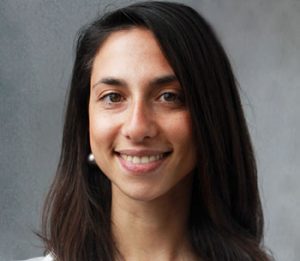
Article by Emmanouela Mandalaki, NEOMA Business School
Attempting to answer this question, inclusive forms of writing are increasingly undertaken worldwide, taking language itself as a good starting point for nurturing inclusion in society, with broader political ramifications. Indeed, words are among the primary tools that we have to understand the world around us, to learn but also to become knowable and known to one another, as the feminist thinker Sara Ahmed reminds us.
Languages such as the French one, where the feminine and the masculine are usually clearly designated in the words that we use and where traditionally the feminine is dominated by the masculine in several expressions, such as the plural form both in written and oral language, make us pose this question even more strongly. What does this designate? How some bodies become absent from daily discourse and how this becomes normalized is a matter of increasing attention both in social life and academia.
Attempting to mitigate the ‘cleansing’ bases upon which language is structured, efforts are taken to feminize the way we speak and write, through the use of what we call inclusive writing. This is used to denote the existence, in the same word, of both sexes – the feminine and the masculine. Even though inclusive writing is increasingly used in informal written documents and blogs of universities or other institutions invested to promote inclusion in the society, it still remains absent from formal administrative documents and has created heated political debates.
Besides its intentions to foster inclusivity, inclusive writing also presents some practical problems, such as difficulties related to its readability and thus its oral use. Moreover, inclusive writing might be problematic for individuals with dyslexia, given its complex written structure, which can be even more challenging when pronounced. Additionally, it might often not be recognized in simple internet sources, thus not generating relevant results. Beyond these and other practical issues related to the use of inclusive writing, we can still pose ourselves the critical question whether inclusive writing is really as inclusive as it preaches to be. Whom does it include and whom not? For instance, feminist thinkers, like Judith Butler, have called our attention to how normative efforts to promote inclusion in society, might in fact be experienced as exclusive for bodies not abiding by societal gendered norms.
In the case of inclusive writing, in particular, can we still claim to be inclusive if we only account for the masculine and the feminine in the way we write, thus excluding individuals who do not identify either as men or women, such as many of the members of the LGBT+ community or non-binary individuals for instance? To respond to this, feminist movements and activists have started using the letter ‘x’– a letter often used to describe the creation of new spaces, crossing of borders and openness to new, untrodden territories (e.g., GoogleX, SpaceX etc.). They do so to denote a gender-neutral, inclusive use of language which does not identify either as masculine or feminine in the first place. In this tradition, womnx is often used to replace woman (but pronounced the same way), to address the sexist underpinnings of the existence of man in the original word.
Beyond the daily level of language use, efforts to promote inclusivity in academic language in particular have been taken up by feminist thinkers, such as Hélène Cixous and Luce Irigaray, as well as by critical researchers, in organization studies, who engage with such feminist perspectives to reimagine new uses of what academic language can be. These works, widely known in academia as writing differently seek to enable the creation of more inclusive spaces where different bodies traditionally under-represented by normative academic thinking and writing conventions can be meaningfully expressed in academic discourse. Again, by feminizing language it is not here implied excluding the masculine altogether. This is rather based on the recognition of a constant co-existence between the feminine and the masculine which proposes moving towards forms of bisexual writing, whereby different voices can be heard.
However inclusive the above efforts might intend to be, we should not forget that attempts to foster inclusion of different bodies, in the language that we use and the society more broadly should not only remain to the surface (how we write) but also become possible through the deeper meanings that the associations of the words that we use can enable (what we write), and vice versa. Undoubtedly a combination of the two, that is a careful consideration of what and how we write is necessary for promoting inclusion in our ways of relating, speaking, writing as well as becoming knowable and known to one another, in social life and academia.
 Emmanouela is an Associate Professor of Organizations at NEOMA Business School. In her research, Emmanouela explores dynamics and asymmetries between cognitive and corporeal factors shaping ethical and affective inter-personal interactions in social and organizational contexts, including methods of academic research and writing, to provide alternative perspectives to her subjects of inquiry. She analyses these dynamics to explore questions of gender, inclusion and inequalities in organizations. Emmanouela’s research has appeared in book volumes and international outlets such as the Journal of Business Ethics, Organization, Management, and Gender, Work and Organization. Emmanouela also serves as an ad hoc reviewer for several journals including Organization Studies, Organization, the Journal of Business Ethics, and Gender, Work and Organization, among others. During her pre-academic and academic career, Emmanouela worked in both for-profit and non-for-profit international organizations in Egypt, Switzerland, Greece, Albania, Andorra, Spain, Chile, Brazil, and Colombia, obtaining diverse social experiences that feed into her research practice.
Emmanouela is an Associate Professor of Organizations at NEOMA Business School. In her research, Emmanouela explores dynamics and asymmetries between cognitive and corporeal factors shaping ethical and affective inter-personal interactions in social and organizational contexts, including methods of academic research and writing, to provide alternative perspectives to her subjects of inquiry. She analyses these dynamics to explore questions of gender, inclusion and inequalities in organizations. Emmanouela’s research has appeared in book volumes and international outlets such as the Journal of Business Ethics, Organization, Management, and Gender, Work and Organization. Emmanouela also serves as an ad hoc reviewer for several journals including Organization Studies, Organization, the Journal of Business Ethics, and Gender, Work and Organization, among others. During her pre-academic and academic career, Emmanouela worked in both for-profit and non-for-profit international organizations in Egypt, Switzerland, Greece, Albania, Andorra, Spain, Chile, Brazil, and Colombia, obtaining diverse social experiences that feed into her research practice.
